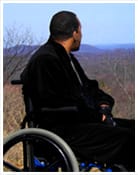Wrongful death lawsuits are a way for the civil courts to provide justice when someone dies as a result of another’s actionable choices. State law allows for financial claims against both businesses and individuals who cause someone’s death as a result of negligence, recklessness or intentionally dangerous actions or inactions.
Wrongful death claims can be filed independent of criminal prosecution as a means of giving a family closure and alleviating the financial hardship caused by the death in question. When successful, wrongful death claims can lead to financial compensation that can settle someone’s outstanding personal responsibilities and also help support their grieving family members.
Whether someone died in a drunk driving collision or as the result of a defective product, family members may be eager to pursue justice in civil court. There are two important rules that impact wrongful death claims in New York that those who have recently lost a loved one should know about.
Who is empowered to file a wrongful death lawsuit
In many cases, wrongful death lawsuits come directly from the estate of the deceased. The personal representative of the estate will initiate a lawsuit to hold a business or individual responsible for someone’s untimely death. If the lawsuit is successful, they will use the proceeds to cover the deceased party’s financial obligations and then to compensate their surviving dependent family members.
However, in some cases, immediate family members, including the parents of a minor child, may file the lawsuit instead of having the estate initiate civil proceedings. Spouses and children may also have the right to file a lawsuit when the representative of an estate fails to do so.
The state’s strict statute of limitations
Individuals who are hoping to obtain justice through a wrongful death lawsuit will generally need to act quickly, as such claims are only possible for two years after the date of someone’s death. With rare exceptions for scenarios involving new evidence uncovered after someone dies, most wrongful death claims will need to start shortly after someone’s passing.
Family members and estate executors who recognize that there is a need for financial justice and closure could push for civil litigation to hold the responsible party accountable for an untimely death. Filing a wrongful death lawsuit can be a means of securing closure for those grieving a loved one’s sudden, preventable passing.

